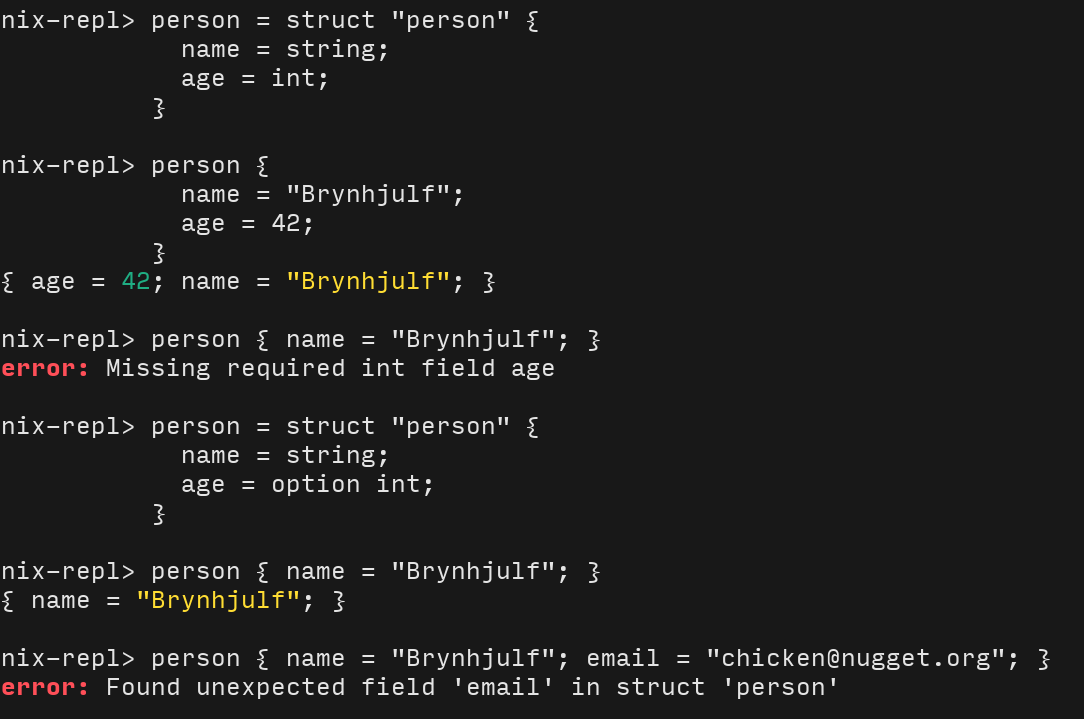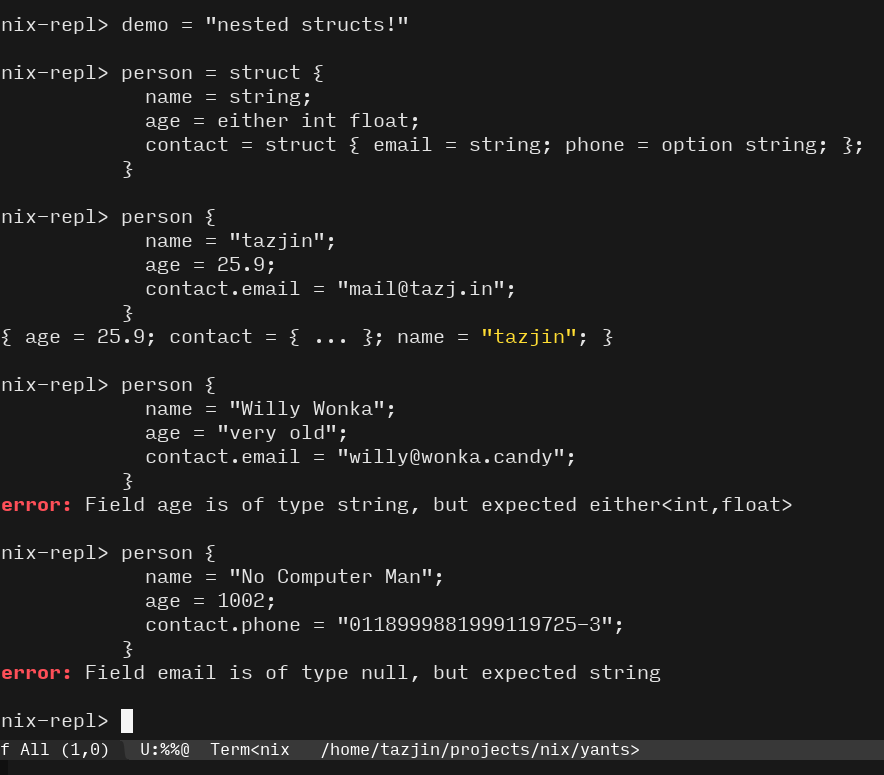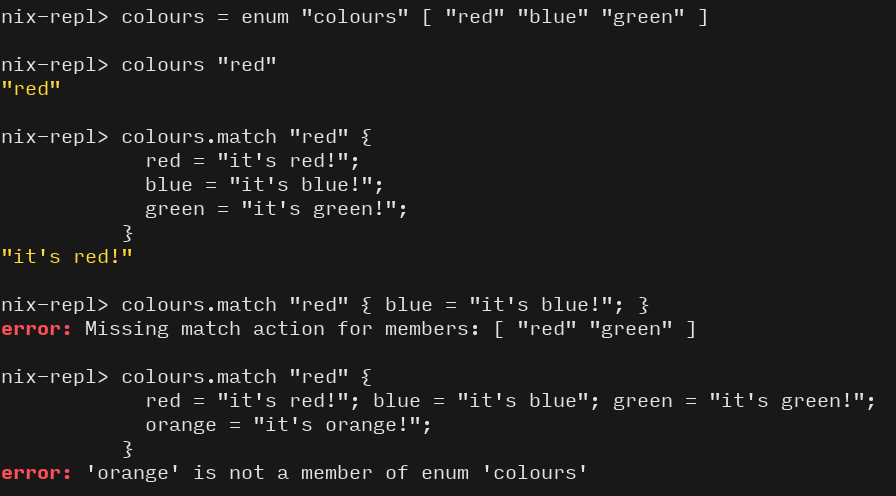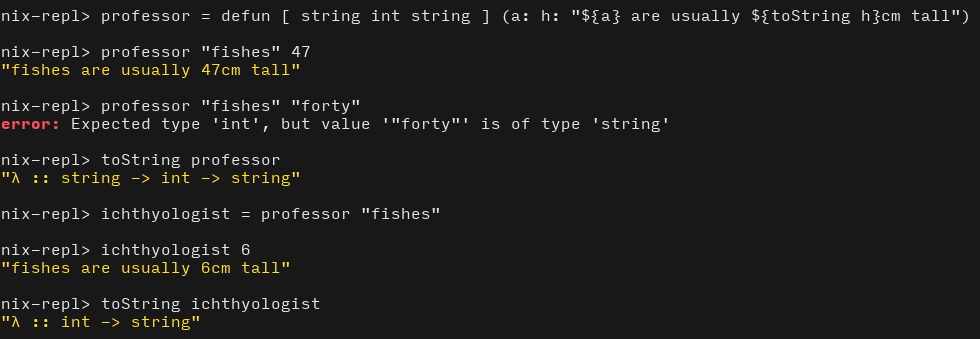No description
| screenshots | ||
| .travis.yml | ||
| CODE_OF_CONDUCT.md | ||
| CONTRIBUTING.md | ||
| default.nix | ||
| LICENSE | ||
| README.md | ||
| tests.nix | ||
yants
This is a tiny type-checker for data in Nix, written in Nix.
Features
- Checking of primitive types (
int,stringetc.) - Checking polymorphic types (
option,list,either) - Defining & checking struct/record types
- Defining & matching enum types
- Defining & matching sum types
- Defining function signatures (including curried functions)
- Types are composable!
option string!list (either int (option float))! - Type errors also compose!
Currently lacking:
- Any kind of inference
- Convenient syntax for attribute-set function signatures
Primitives & simple polymorphism
Structs
Nested structs!
Enums!
Functions!
Usage
Yants can be imported from its default.nix. A single attribute (lib) can be
passed, which will otherwise be imported from <nixpkgs>.
Examples for the most common import methods would be:
-
Import into scope with
with:with (import ./default.nix {}); # ... Nix code that uses yants ... -
Import as a named variable:
let yants = import ./default.nix {}; in yants.string "foo" # or other uses ... -
Overlay into
pkgs.lib:# wherever you import your package set (e.g. from <nixpkgs>): import <nixpkgs> { overlays = [ (self: super: { lib = super.lib // { yants = import ./default.nix { inherit (super) lib; }; }; }) ]; } # yants now lives at lib.yants, besides the other library functions!
Please see my Nix one-pager for more generic information about the Nix language and what the above constructs mean.
Stability
The current API of Yants is not yet considered stable, but it works fine and should continue to do so even if used at an older version.
Yants' tests use Nix versions above 2.2 - compatibility with older versions is not guaranteed.




